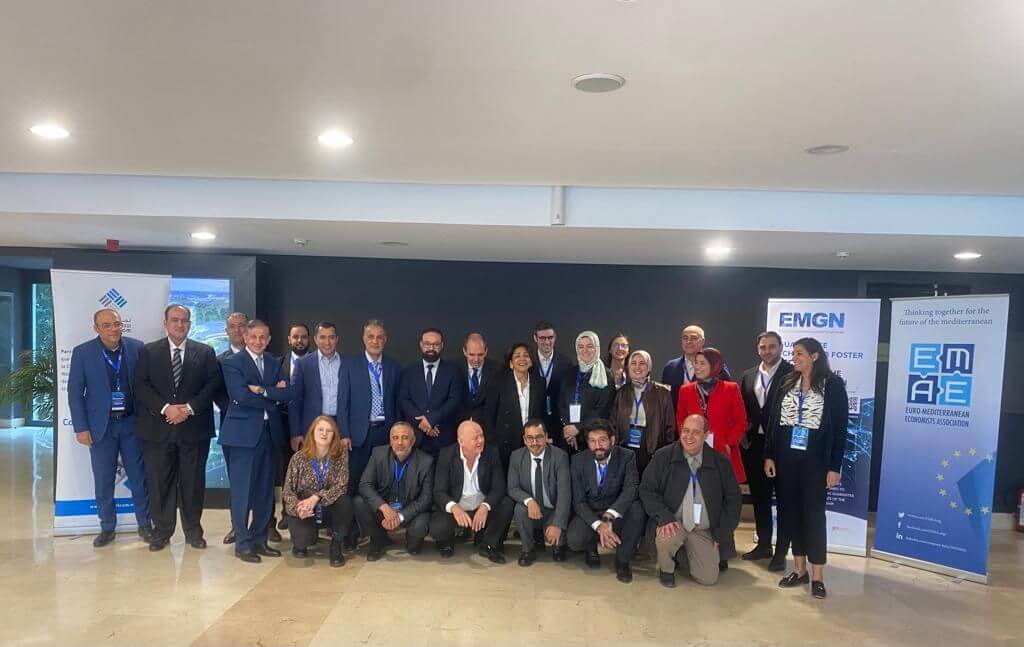
Posted on January 19, 2024
The EMGN Winter Academy 2024 “Financial Inclusion and Digitalisation” took place in Rabbat, Morocco, on the 15th and 16th January 2024. It was centred around two themes: Financial Inclusion and Digitalisation. Its primary objective is to enrich participants’ knowledge and skills while disseminating CGS’s good practices to enhance financial inclusion and promote the digitisation of processes and services.
The Academy program delved into various facets of financial inclusion, including strategies to enhance access to finance for MSMEs, the gender dimension, the potential for a counter-guarantee scheme, and the need to measure financial and economic additionalities to assess the impact of CGSs. It also covered aspects of digitalisation by addressing challenges and showcasing success stories involving Fintech and RegTech, and encouraging peer-to-peer learning between credit guarantee institutions.
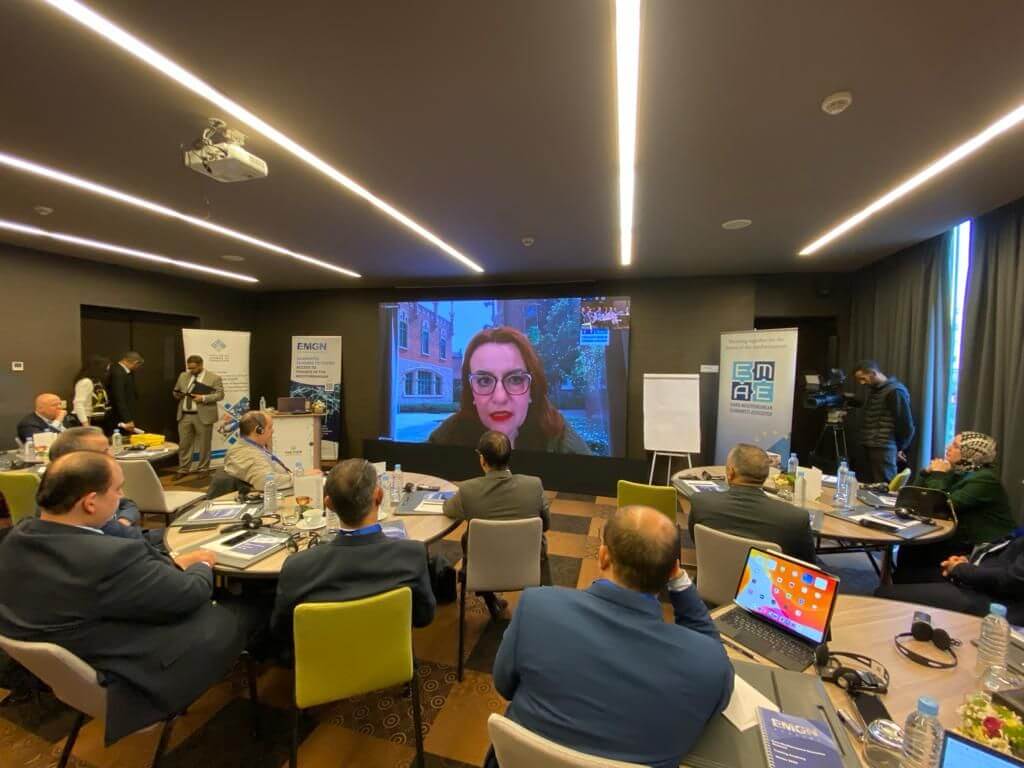
The Academy opened with welcome addresses by Prof. Rym Ayadi, President of the Euro-Mediterranean Economists Association – EMEA and Mr. Abdelmoughite Abdelmoumen, Chief Strategy officer at TAMWILCOM, and the introduction to the Academy by the event moderator, Jost Wagner, Managing Director of the Change Initiative.
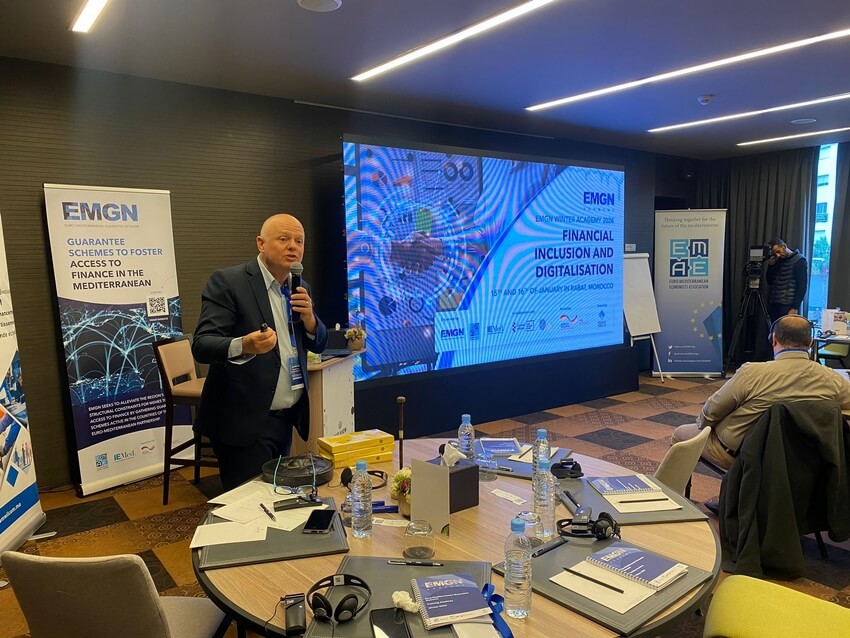
Prof Ayadi underlined in her speech that “Credit guarantee schemes serve as a pivotal bridge in financial inclusion, offering a safety net that empowers lenders to extend their reach to previously underserved markets. When intertwined with digitalization, these schemes not only transcend traditional barriers but also foster an ecosystem where access to finance is no longer a privilege but a universal right. This synergy of guarantees and digital innovation heralds a new era of inclusive finance, where opportunities are democratically accessible, and economic growth is a shared journey, not a secluded destination.”
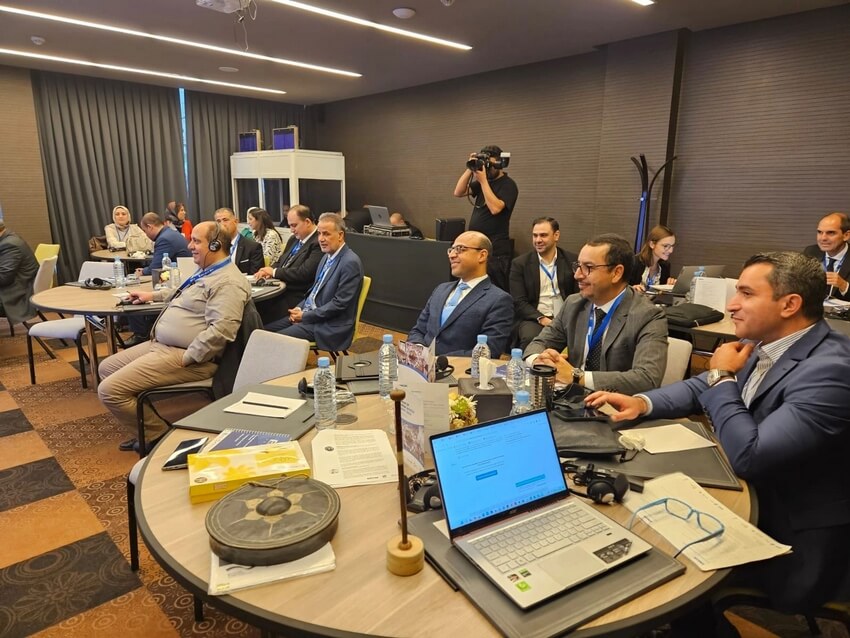
On-site were present 23 Members of EMGN and associates including representatives for Tamwilcom Morocco, Sotugar Tunisia, CGC Egypt, Jordan Loan Guarantee Corp as well as associates guarantee organisations from Kafalah Saudi Arabia, CGF Libya, and guest from AIS Group and GNGI. The Academy received an overall score of 4.5 out of 5 from participants, particularly highlighting the quality of peer-to-peer learning as well as the key insights and recommendations shared by the different speakers.
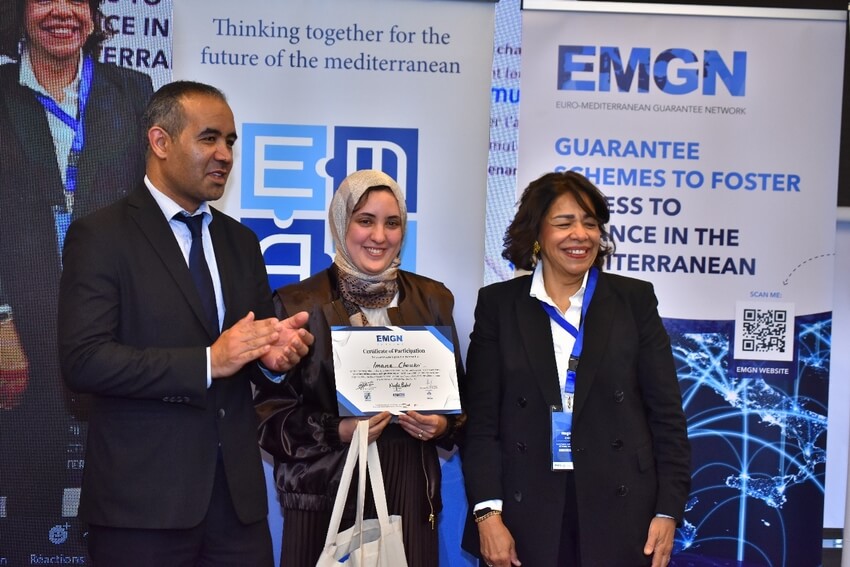
The Academy ended with final remarks by Ms. Nagla Bahr, Chairwomen of EMGN and CEO of CGC Egypt and the presentation of participation certificates for the Euro-Mediterranean Guarantee Network -EMGN Winter Academy 2024.
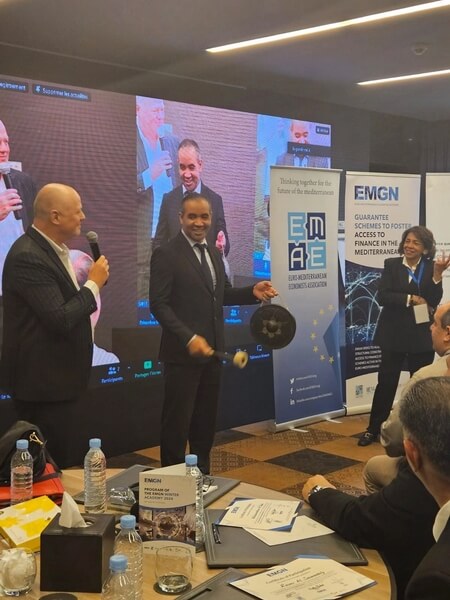
The Euro-Mediterranean Guarantee Network – EMGN is promoted by the Euro-Mediterranean Economists Association – EMEA, the European Institute of the Mediterranean (IEMED) and with the support of Deutsche Gesellschaft für Internationale Zusammenarbeit (GIZ) GmbH.
The Winter Academy of 2024 was organised by the Euro-Mediterranean Guarantee Network (EMGN), led by the Euro-Mediterranean Economists Association (EMEA) in collaboration with the European Institute of the Mediterranean (IEMED) , the Business School of Essex from the University of Essex and the Alliance for Financial Inclusion (AFI). It was hosted by Tamwilcom, a Credit Guarantee Company in Morocco, and a member of the EMGN Network. EMGN Academies are carried out as part of a project financed by the German Agency for International Cooperation (GIZ) commissioned by the Government of the Federal Republic of Germany, namely: “Innovation Fund Jobs through Trade and Investment in the Southern Neighbourhood of the EU”.
Key highlights from the EMGN Winter Academy training workshop:
- The development of SMEs is key to absorbing the growing global workforce, and credit guarantee schemes can play a significant role in facilitating their development by fostering a more inclusive financial ecosystem particularly when making credit more accessible to underserved businesses e.g. run by women, minorities, and geographically underserved areas.
- Financial and economic additionality of CGSs should be systemically and periodically evaluated to ensure the reality of impact.
- Lack of access to finance impedes the growth of women-led MSMEs’, CGSs can foster their financial inclusion by providing an alternative source of collateral and targeted support.
- ENGZ, Egypt’s first direct digital guarantee product, has the potential to enhance the financial inclusion of SMEs through a smart and transparent digital platform that overcomes barriers related to banks’ risk aversion, lack of awareness, and complex procedures.
- The FinTech revolution impacted the financial sector in a number of ways; increasing efficiency, creating new investment opportunities, increasing competition, and improving regulatory activities. Additionally, this revolution has been accompanied by technology enabled innovation for regulatory purposes (RegTech) which has the potential to make compliance more effective.
- Digitizing SME finance and making use of transactional and alternative data offers an opportunity for addressing both the demand and supply sides of the access to finance problem.
- Utilizing digital technologies can impact credit guarantee schemes in several ways:
◦ Improve productivity
◦ Increase efficiency
◦ Raise visibility and awareness
◦ Enhance communication
◦ Develop innovative products
◦ Evaluate impact
◦ Facilitate training and capacitation - CGSs shared their digital transformation projects, in particular, JLGC Jordan presented their journey from project governance, cultural change, enhancement of existing systems, to implementation of a business process management platform.


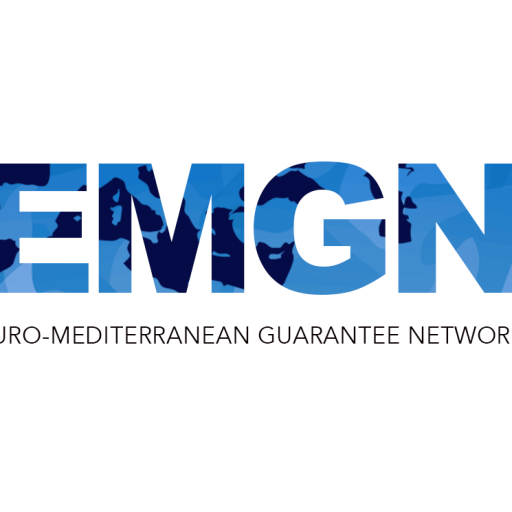
About The Author: Emgn_admin
More posts by emgn_admin